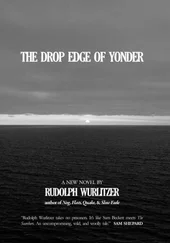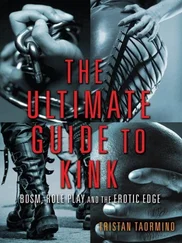W. MAUGHAM - The Razor's Edge
Здесь есть возможность читать онлайн «W. MAUGHAM - The Razor's Edge» весь текст электронной книги совершенно бесплатно (целиком полную версию без сокращений). В некоторых случаях можно слушать аудио, скачать через торрент в формате fb2 и присутствует краткое содержание. Жанр: Современная проза, на английском языке. Описание произведения, (предисловие) а так же отзывы посетителей доступны на портале библиотеки ЛибКат.
- Название:The Razor's Edge
- Автор:
- Жанр:
- Год:неизвестен
- ISBN:нет данных
- Рейтинг книги:3 / 5. Голосов: 1
-
Избранное:Добавить в избранное
- Отзывы:
-
Ваша оценка:
- 60
- 1
- 2
- 3
- 4
- 5
The Razor's Edge: краткое содержание, описание и аннотация
Предлагаем к чтению аннотацию, описание, краткое содержание или предисловие (зависит от того, что написал сам автор книги «The Razor's Edge»). Если вы не нашли необходимую информацию о книге — напишите в комментариях, мы постараемся отыскать её.
The Razor's Edge — читать онлайн бесплатно полную книгу (весь текст) целиком
Ниже представлен текст книги, разбитый по страницам. Система сохранения места последней прочитанной страницы, позволяет с удобством читать онлайн бесплатно книгу «The Razor's Edge», без необходимости каждый раз заново искать на чём Вы остановились. Поставьте закладку, и сможете в любой момент перейти на страницу, на которой закончили чтение.
Интервал:
Закладка:
'Chance. At least I thought so at the time. Now I'm inclined to think it was the inevitable outcome of my years in Europe. Almost all the people who've had most effect on me I seem to have met by chance, yet looking back it seems as though I couldn't but have met them. It's as if they were waiting there to be called upon when I needed them. I went to India because I wanted a rest. I'd been working very hard and wished to sort out my thoughts. I got a job as a deck hand on one of those pleasure-cruise ships that go around the world. It was going to the East and through the Panama Canal to New York. I hadn't been to America for five years and I was homesick. I was depressed. You know how ignorant I was when we first met in Chicago all those years ago. I'd read an awful lot in Europe and seen a lot, but I was no nearer than when I started to what I was looking for.'
I wanted to ask him what that was, but had a feeling that he'd just laugh, shrug his shoulders, and say it was a matter of no consequence.
'But why did you go as a deck hand?' I asked instead. 'You had money.'
'I wanted the experience. Whenever I've got water-logged spiritually, whenever I've absorbed all I can for the time, I've found it useful to do something of that sort. That winter, after Isabel and I broke off our engagement, I worked in a coal-mine near Lens for six months.'
It was then that he told me of those incidents that I have narrated in a previous chapter.
'Were you sore when Isabel threw you over?'
Before he answered he looked at me for some time with those strangely black eyes of his that seemed then to look inwards rather than out.
'Yes, I was very young. I'd made up my mind that we were going to marry. I'd made plans for the life that we were going to lead together. I expected it to be lovely.' He laughed faintly. 'But it takes two to make a marriage just as it takes two to make a quarrel. It had never occurred to me that the life I offered Isabel was a life that filled her with dismay. If I'd had any sense I'd never have suggested it. She was too young and ardent. I couldn't blame her. I couldn't yield.'
It's just possible that the reader will remember that on his flight from the farm, after that grotesque encounter with the farmer's widowed daughter-in-law, he had gone to Bonn. I was anxious to get him to continue, but knew I must be careful not to ask more direct questions than I could help.
'I've never been to Bonn,' I said. 'When I was a boy I spent some time as a student at Heidelberg. It was, I think, the happiest time of my life.'
'I liked Bonn. I spent a year there. I got a room in the house of the widow of one of the professors at the university who took in a couple of boarders. She and her two daughters, both of them middle-aged, did the cooking and the house-work. I found my fellow boarder was a Frenchman and I was disappointed at first because I wanted to speak nothing but German; but he was an Alsatian and he spoke German, if not more fluently, with a better accent than he spoke French. He was dressed like a German pastor and I was surprised to find out after a few days that he was a Benedictine monk. He's been granted leave of absence from his monastery to make researches at the university library. He was a very learned man, but he didn't look it any more than he looked like my idea of a monk. He was a tall, stout fellow, with sandy hair, prominent blue eyes, and a red, round face. He was shy and reserved and didn't seem to want to have anything much to do with me, but he was very polite in a rather elaborate way and always took a civil part in the conversation at table; I only saw him then; as soon as we had finished dinner he went back to work at the library, and after supper, when I sat in the parlour improving my German with whichever of the two daughters wasn't washing up, he retired to his room.
'I was surprised when one afternoon, after I'd been there at least a month, he asked me if I'd care to take a walk with him. He said he could show me places in the neighbourhood that he didn't think I'd be likely to discover for myself. I'm a pretty good walker, but he could outwalk me any day. We must have covered a good fifteen miles on that first walk. He asked me what I was doing in Bonn, and I said I'd come to learn German and get to know something about German literature. He talked very intelligently. He said he'd be glad to help me in any way he could. After that we went for walks two or three times a week. I discovered that he'd taught philosophy for some years. When I was in Paris I'd read a certain amount, Spinoza and Plato and Descartes, but I hadn't read any of the great German philosophers and I was only too glad to listen while he talked about them. One day, when we'd made an excursion across the Rhine and were sitting in a beer-garden drinking a glass of beer, be asked me if I was a Protestant.
'"I suppose so," I said.
'He gave me a quick look and I thought I saw in his eyes the glimmer of a smile. He began to talk about Aeschylus; I'd been learning Greek, you know, and he knew the great tragedians as I could never hope to know them. I was inspiring to hear him. I wondered why he'd suddenly asked me that question. My guardian, Uncle Bob Nelson, was an agnostic, but life went to church regularly because his patients expected it of him and sent me to Sunday school for the same reason. Martha, our help, was a rigid Baptist and she used to frighten my childhood by telling me of the hell fire to which the sinner would be condemned to all eternity. She took a real delight in picturing to me the agonies that would be endured by the various people in the village whom for some reason or other she had had it in for.
'By winter I'd got to know Father Ensheim very well. I think he was rather a remarkable man. I never saw him vexed. He was good-natured and kindly, far more broadminded than I would have expected, and wonderfully tolerant. His erudition was prodigious and he must have known how ignorant I was, but he used to talk to me as though I were as learned as he. He was very patient with me. He seemed to want nothing but to be of service to me. One day, I don't know why, I had an attack of lumbago, and Frau Grabau, my landlady, insisted on putting me to bed with hot-water-bottles. Father Ensheim, hearing I was laid up, came into my room to see me, after supper. Except that I was in a good deal of pain I felt perfectly well. You know what bookish people are, they're inquisitive about books, and as I put down the book I was reading when he came in, he took it up and looked at the title. It was a book about Meister Eckhart that I'd found at a bookseller's in the town. He asked me why I was reading it, so I said that I'd been going through a certain amount of mystical literature and told him about Kosti and how he'd aroused my interest in the subject. He surveyed me with his prominent blue eyes and there was a look in them that I can only describe as amused tenderness. I had the feeling that he found me rather ridiculous, but felt so much loving-kindness towards me that he didn't like me any the less. Anyhow, I've never much minded if people thought me a bit of a fool.
'"What are you looking for in these books?" he asked me.
'"If I knew that," I answered, "I'd at least be on the way to finding it."
'"Do you remember my asking you if you were a Protestant? You said you supposed so. What did you mean by that?"
'"I was brought up as one," I said.
'"Do you believe in God?" he asked.
'I don't like personal questions and my first impulse was to tell him that was no business of his. But there was so much goodness in his aspect that I felt it impossible to affront him. I didn't know what to say; I didn't want to answer yes and I didn't want to answer no. It may have been the pain I was suffering that enabled me to speak or it may have been something in him. Anyhow, I told him about myself.'
Читать дальшеИнтервал:
Закладка:
Похожие книги на «The Razor's Edge»
Представляем Вашему вниманию похожие книги на «The Razor's Edge» списком для выбора. Мы отобрали схожую по названию и смыслу литературу в надежде предоставить читателям больше вариантов отыскать новые, интересные, ещё непрочитанные произведения.
Обсуждение, отзывы о книге «The Razor's Edge» и просто собственные мнения читателей. Оставьте ваши комментарии, напишите, что Вы думаете о произведении, его смысле или главных героях. Укажите что конкретно понравилось, а что нет, и почему Вы так считаете.









